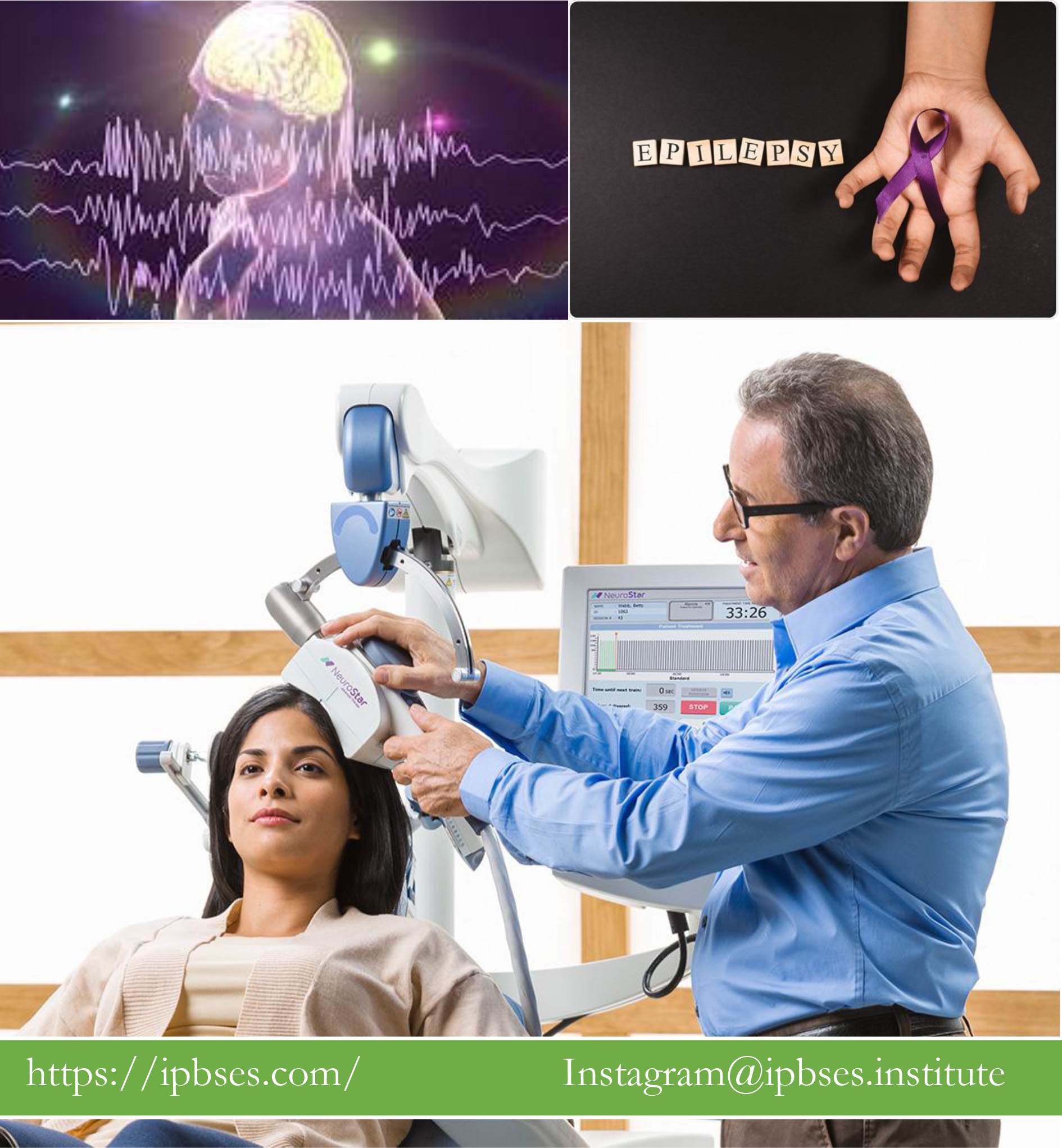پژوهشگران دانشگاه هاروارد ایالات متحده امریکا و دانشگاه فدرال ریودژانیرو برزیل در پژوهشی مشترک به بررسی مروری تاثیرات جانبی و ایمنی تحریک فراجمجمهای مکرر (rTMS) در درمان تشنج بیماران صرع پرداختند.
روش:
- در این پژوهش مرور سیستماتیک، با استفاده از کلیدواژه تحریک فراجمجمهای مکرر (rTMS)، صرع، بیمار، ارزیابی خطر، و درمان صرع از موتورهای جستجوی PubMed، EmBase، Web of Science، PsycINFO، و Cochrane استفاده شد.
- از ۱۴۶۶ پژوهش یافت شده، تعداد ۴۶ مقاله واجد ملاکهای ورودی پژوهش شناخته شدند.
- برای تحلیل نتایج از دو راهبرد ارزیابی ریسک خام به ازای هر نفر و تحلیل اکتشافی ثانوی ریسک بر اساس کویل، شدت، فرکانس، و محرکها در هر جلسه، استفاده شد.
نتایج:
- یکی از مخاطرات اجرای تحریک فراجمجمهای مکرر (rTMS)، بروز تشنج در بیمار حین و یا بلافاصله پس از جلسه درمانی است.
- در ۱۸٫۳% افراد دارای صرع که تحریک فراجمجمهای مکرر (rTMS) دریافت کردهاند، عوارض جانبی گزارش شده است که ۸۵% موارد خفیف بوده است.
- عوارض جانبی تحریک فراجمجمهای مکرر (rTMS) در درمان صرع شامل خوابآلودگی و سردرد است که تنها در ۸٫۹% موارد درمانی گزارش شده است.
- میزان ریسک خام محاسبه شده برای تحریک فراجمجمهای مکرر (rTMS) برای تشنجهایی که حین یا بلافاصله بعد از جلسه درمان رخ میدهند، به ازای هر بیمار ۲٫۹% بود.
- ایمنی تحریک فراجمجمهای مکرر (rTMS) در درمان تشنجهای صرع برای بیماران مبتلا، همانند سایر روشهای درمانی صرع (دارودرمانی، جراحی) است.
- برای اجرای تحریک فراجمجمهای مکرر (rTMS) لازم است اطلاعات کاملی از نوسانات مغزی، مکانیابی دقیق کانونهای شروع و انتشار، و فرکانس پایه تشنجهای فردی هر بیمار بدست آیند.
راهبردهای کارکردی:
- روش تحریک فراجمجمهای مکرر (rTMS) روشی نوین و امن در درمان تشنج بیماری صرع است.
- برای کارایی درست روش درمانی تحریک فراجمجمهای مکرر (rTMS)، لازم است خط پایه هر یک از گونهها و زیرگونههای صرع محاسبه شده و میزان تاثیر این روش بر هر یک از الگوهای صرع جداگانه و بصورت مقایسهای بررسی شود.
- لازم است پیش و حین درمان تحریک فراجمجمهای مکرر (rTMS) برای بیماری صرع، اطلاعات کاملی از نقشه مغزی و الگوهای فعالیت و دشارژ مغز افراد تحت درمان تدوین شده و با اندازهگیریهای مکرر حین فرآیند درمان، به تنظیم مجدد محرکها پرداخت.
Safety of repetitive transcranial magnetic stimulation in patients with epilepsy: A systematic review
Abstract
Approximately one-third of patients with epilepsy remain with pharmacologically intractable seizures. An emerging therapeutic modality for seizure suppression is repetitive transcranial magnetic stimulation (rTMS).
Despite being considered a safe technique, rTMS carries the risk of inducing seizures, among other milder adverse events, and thus, its safety in the population with epilepsy should be continuously assessed.
We performed an updated systematic review on the safety and tolerability of rTMS in patients with epilepsy, similar to a previous report published in 2007 (Bae EH, Schrader LM, Machii K, Alonso-Alonso M, Riviello JJ, Pascual-Leone A, Rotenberg A. Safety and tolerability of repetitive transcranial magnetic stimulation in patients with epilepsy: a review of the literature. Epilepsy Behav. 2007; 10 (4): 521–۸), and estimated the risk of seizures and other adverse events during or shortly after rTMS application.
We searched the literature for reports of rTMS being applied on patients with epilepsy, with no time or language restrictions, and obtained studies published from January 1990 to August 2015. A total of 46 publications were identified, of which 16 were new studies published after the previous safety review of 2007.
We noted the total number of subjects with epilepsy undergoing rTMS, medication usage, incidence of adverse events, and rTMS protocol parameters: frequency, intensity, total number of stimuli, train duration, intertrain intervals, coil type, and stimulation site. Our main data analysis included separate calculations for crude per subject risk of seizure and other adverse events, as well as risk per 1000 stimuli.
We also performed an exploratory, secondary analysis on the risk of seizure and other adverse events according to the type of coil used (figure-of-8 or circular), stimulation frequency (≤ ۱ Hz or > ۱ Hz), pulse intensity in terms of motor threshold (< ۱۰۰% or ≥ ۱۰۰%), and number of stimuli per session (< ۵۰۰ or ≥ ۵۰۰).
Presence or absence of adverse events was reported in 40 studies (n = ۴۲۶ subjects). A total of 78 (18.3%) subjects reported adverse events, of which 85% were mild. Headache or dizziness was the most common one, occurring in 8.9%.
We found a crude per subject seizure risk of 2.9% (95% CI: 1.3–۴٫۵), given that 12 subjects reported seizures out of 410 subjects included in the analysis after data of patients with epilepsia partialis continua or status epilepticus were excluded from the estimate.
Only one of the reported seizures was considered atypical in terms of the clinical characteristics of the patients’ baseline seizures.
The atypical seizure happened during high-frequency rTMS with maximum stimulator output for speech arrest, clinically arising from the region of stimulation.
Although we estimated a larger crude per subject seizure risk compared with the previous safety review, the corresponding confidence intervals contained both risks.
Furthermore, the exclusive case of atypical seizure was the same as reported in the previous report.
We conclude that the risk of seizure induction in patients with epilepsy undergoing rTMS is small and that the risk of other adverse events is similar to that of rTMS applied to other conditions and to healthy subjects.
Our results should be interpreted with caution, given the need for adjusted analysis controlling for potential confounders, such as baseline seizure frequency.
The similarity between the safety profiles of rTMS applied to the population with epilepsy and to individuals without epilepsy supports further investigation of rTMS as a therapy for seizure suppression.
Keywords
Repetitive transcranial magnetic stimulation (rTMS), Epilepsy, Seizure, Safety, Adverse events, epilepsia partialis continua, status epilepticus
لینک منبع پیشنهادی برای مطالعه بیشتر  (further reading)
(further reading)

seizures. An emerging therapeutic modality for seizure suppression is repetitive transcranial
magnetic stimulation (rTMS). Despite being considered a safe technique, rTMS carries
the risk of inducing seizures…



